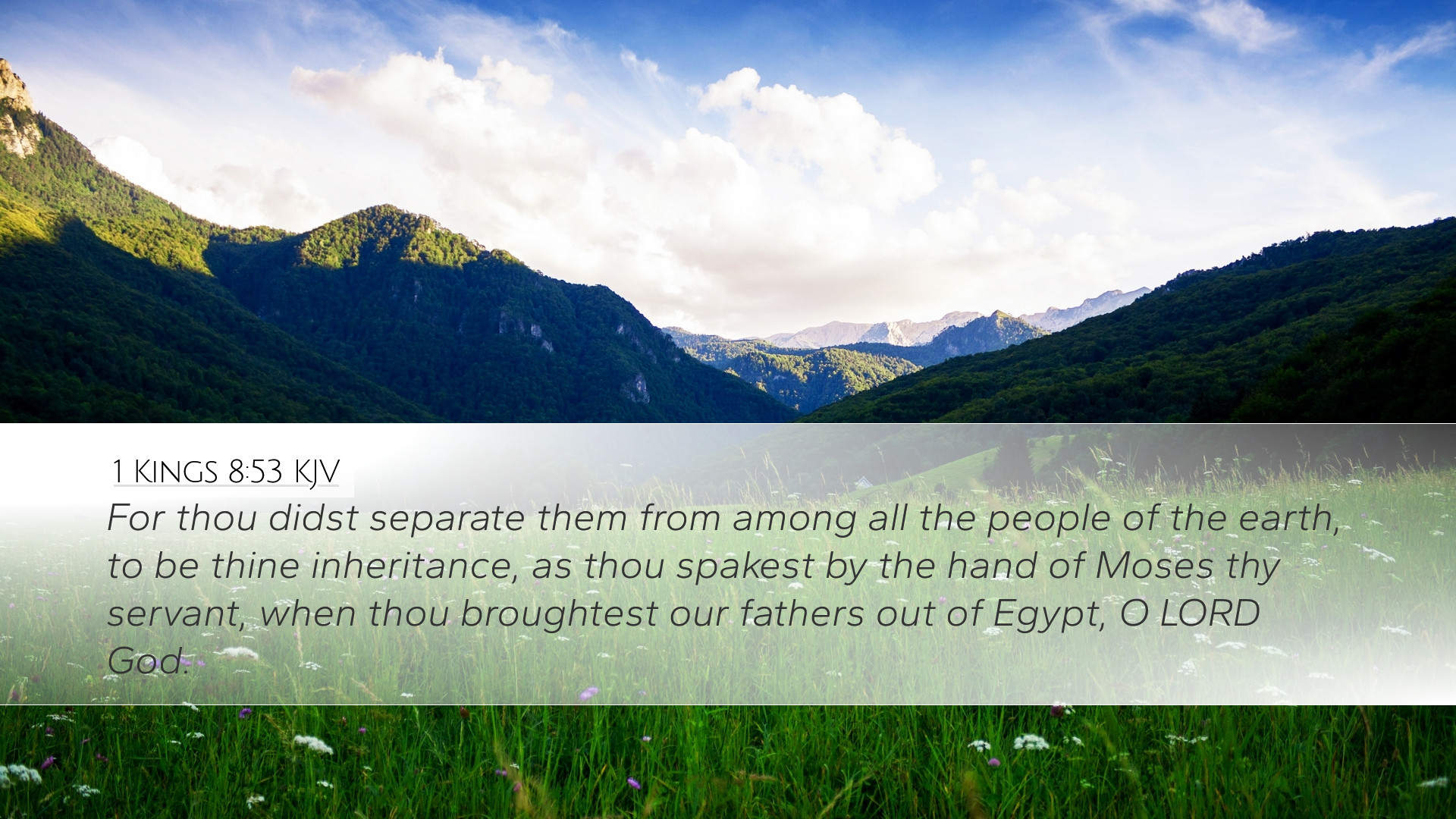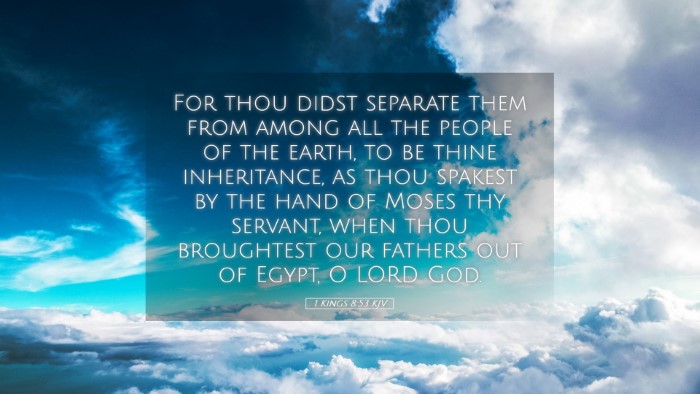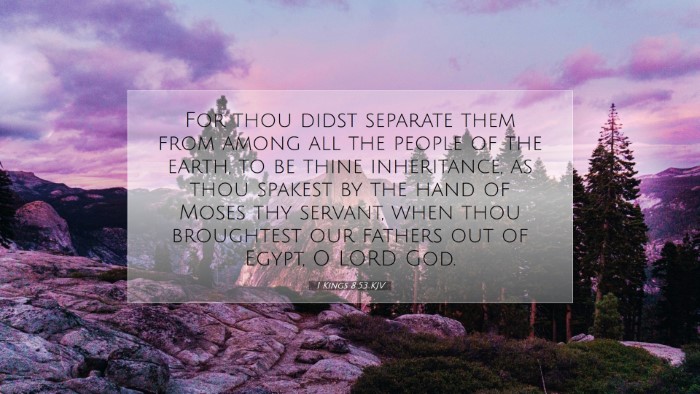Commentary on 1 Kings 8:53
Verse: "For Thou didst separate them from among all the people of the earth, to be Thine inheritance, as Thou spakest by the hand of Moses Thy servant, when Thou broughtest our fathers out of Egypt, O Lord God." (1 Kings 8:53)
Introduction
The verse at hand is part of King Solomon’s dedication of the temple, a significant event in Israel's history. Here, Solomon appeals to God's covenant relationship with Israel. The theological implications are profound, emphasizing God’s choice and the holiness of the people He has set apart.
Exegesis
This verse embodies a pivotal theological theme – the idea of divine selection and the special status of Israel. The prayer acknowledges God's separating act, which marks Israel as His unique inheritance.
The Theme of Divine Separation
As noted by Matthew Henry, the phrase "Thou didst separate them" signifies God’s deliberate choice of Israel among all nations. It underscores the narrative found throughout Scripture that God selects a people for Himself, establishing a covenant relationship. This separation is not merely for privilege but is coupled with responsibilities and expectations for holiness.
Inheritance and Covenant
Albert Barnes highlights the term "inheritance", which denotes possession and belonging. God’s declaration of Israel as His inheritance implies a profound intimacy and commitment. The historical context of this statement recalls the Exodus and the covenant with Moses, anchoring the new temple's significance in historical salvation history.
Historical Background
Adam Clarke elaborates on the historical context of this dedication. Solomon’s emphasis on the event links it back to the exodus from Egypt, highlighting a continuous narrative of redemption. The temple serves as a fulfillment of God’s promise and a tangible place where God’s presence would dwell with His people.
Theological Insights
The verse also raises critical theological themes essential for pastors and theologians today:
- Divine Choice: The concept that God intentionally selects specific individuals or groups for His purpose emphasizes His sovereignty in history.
- Covenantal Relationship: It invites reflection on what it means to be in a covenant with God and how that covenant is fulfilled in Christ.
- The Nature of Worship: Solomon’s dedication highlights that true worship occurs in acknowledgment of God’s acts and His holiness.
Application for Today
For contemporary believers, this verse calls for a deep understanding of their identity in Christ as a chosen people. 1 Peter 2:9 echoes this sentiment, affirming that believers are a "royal priesthood" and "chosen race". The implications for individual identity and communal worship remain significant:
- Identity in Christ: Believers today must grasp their identity as God’s chosen inheritance and reflect on what that means for their lives.
- Worship as Remembering: Worship is not merely an act but a remembrance of God’s faithfulness throughout history.
- Community and Holiness: The separating work of God calls believers to live distinctively, highlighting the importance of holiness and communal integrity.
Conclusion
In 1 Kings 8:53, the plea made by Solomon is a robust reminder that God’s character and actions alongside the historical faithfulness toward Israel shape the narrative of His people. For scholars, pastors, and students, understanding the depth of this connection enriches both preaching and teaching, grounding faith communities in their identity as God’s chosen heirs. By recognizing the continuity from Israel’s history to the present church, we embrace a comprehensive understanding of God’s redemptive plan through scripture.


